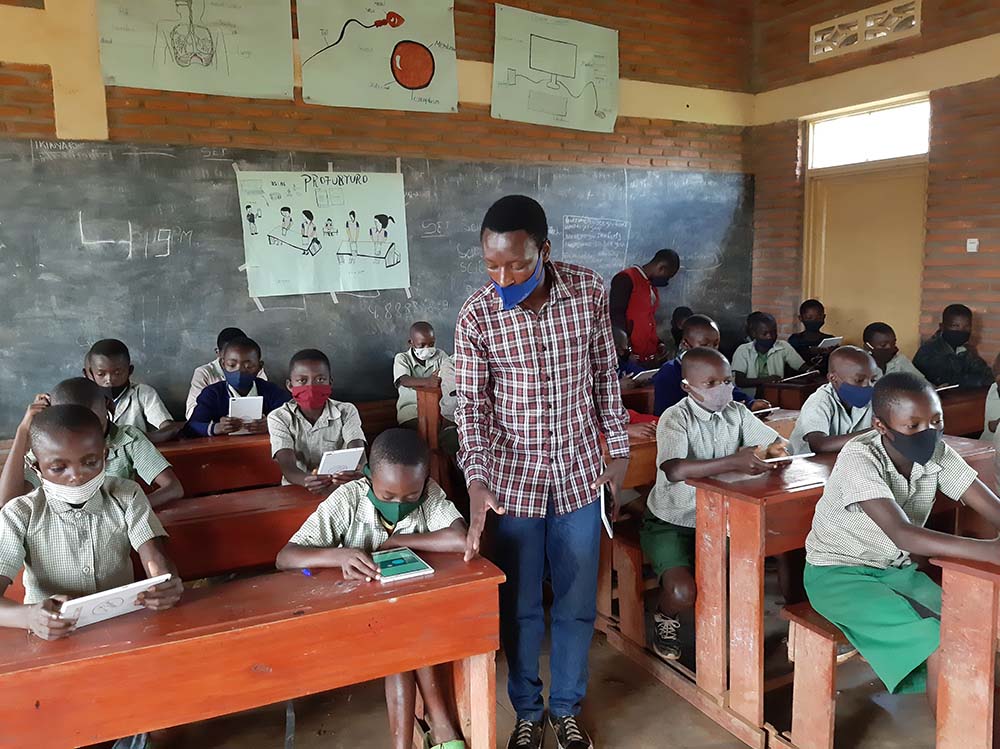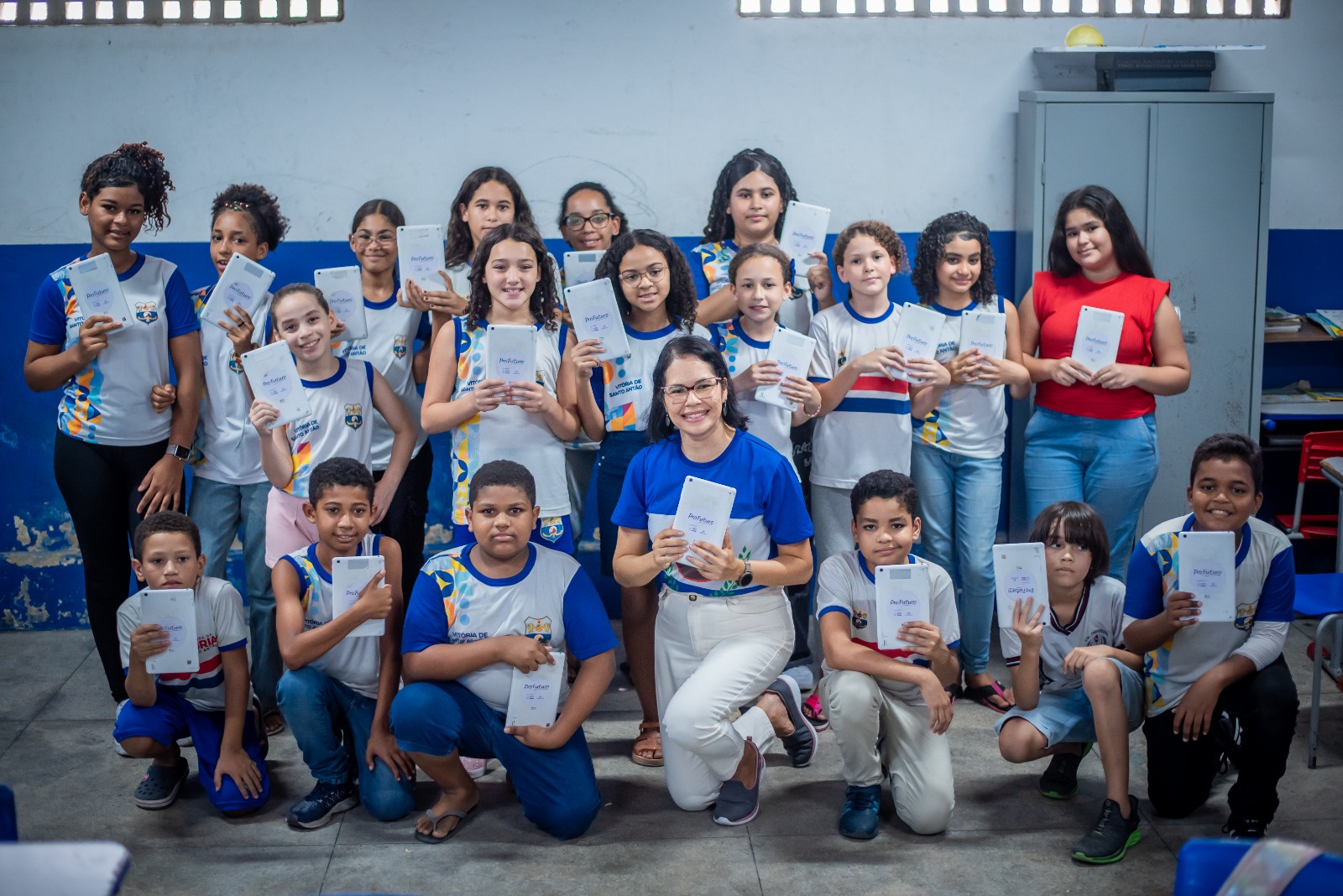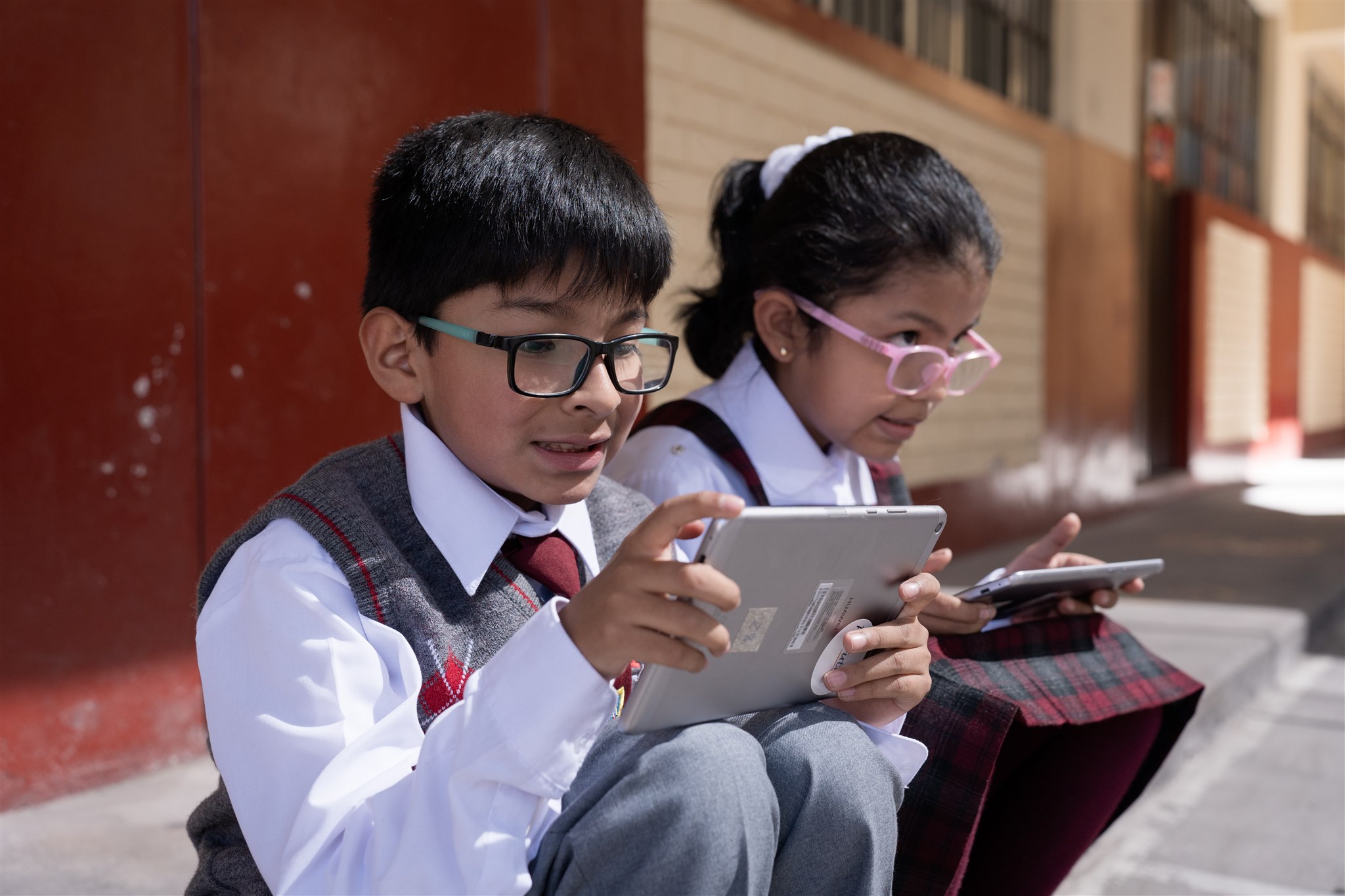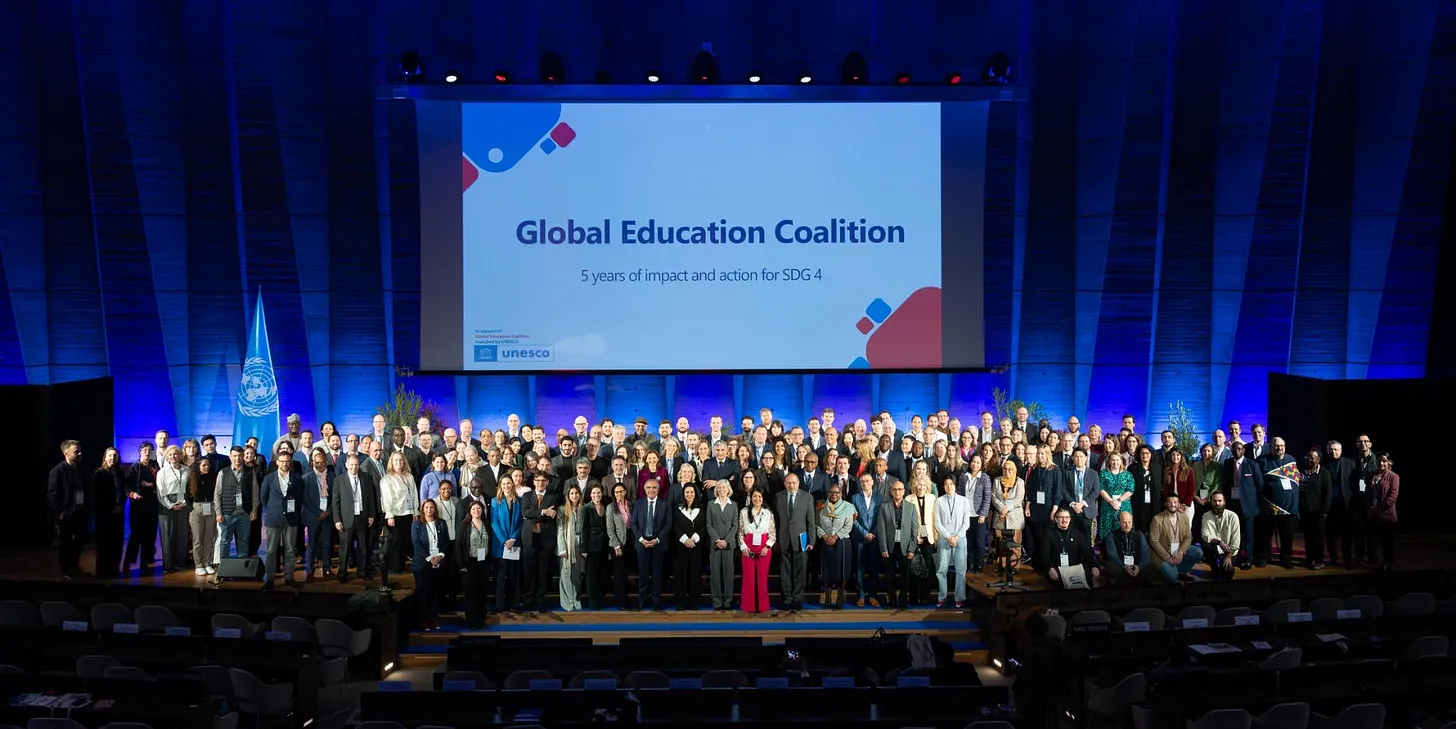It’s time to celebrate at ProFuturo; our educational programme is six years old and we’re still committed to the transformational power of digital e-ducation. More than 1.1 million teachers and about 23.4 million schoolchildren have benefited from it in 40 countries in Latin America, the Caribbean, Africa and Asia since 2016.
“Technology and educational innovation enable us to meet the needs of the most remote schools, the teachers with the greatest difficulties in teaching and the students with the largest barriers preventing them from attending class and learning”, declared ProFuturo Managing Director Magdalena Brier. “We’re proud to see how our programme is harvesting the fruits of the work carried out throughout these six years. Every indication of improvement in the educational quality and the children’s future prospects encourages us to keep on working to ensure that digital education goes further and reaches more people”, she added.

Initial signs of impact
The series of evaluations and research studies carried out in different countries over the last few years has highlighted that our programme contributes, among other goals, to reducing absenteeism and drop-out rates, improving the digital skills of the children and teachers, increasing the motivation to go to school and furthering the families’ commitment to their children’s education.
Six years after our educational programme came into being in 2016, we can confirm the positive impact that ProFuturo has had by benefiting the children, teachers and families and the community as a whole.
- In the children: A report drawn up in the Philippines with the Ayala Foundation in 2021 reveals that 92% of the students declare that they’ve had a more positive outlook on life after joining the ProFuturo programme. Another study carried out in Angola reports a reduction in late arrivals at school among the students, a clear indication that the digital classroom constitutes a significant stimulus for the children’s learning.
- In the families: Moreover, there’s evidence that the programme increases the commitment of the parents and guardians to the children’s education. A qualitative study carried out by the Charles III University of Madrid in 2021 to measure the impact of ProFuturo in Zimbabwe includes testimonies from families who acknowledge the benefits that the programme has brought to their lives. It has led to positive changes in the family dynamics, such as when the children begin to help the adults to use digital tools and when the adults realise the importance of their children developing technological skills so as not to be left behind the rest of society.
- In the teachers: In turn, findings with regard to improved teaching skills and the transformation of pedagogical practices have been obtained. Teachers in Angola claim to have achieved a higher degree of familiarity with the technology. While a greater willingness to undergo vocational training has been observed in Brazil.






